Dover Adult Learning Center marks 50 years: Remembering those who started it all
Editor's note: This is the first of a two-part series recounting the history of the Dover Adult Education Center, which is celebrating its 50th anniversary this year.
For the past five decades, Dover Adult Learning Center of Strafford County has been on a mission to help its students enhance their skills and improve their lives through education, job preparation, high school completion, and enrichment classes.
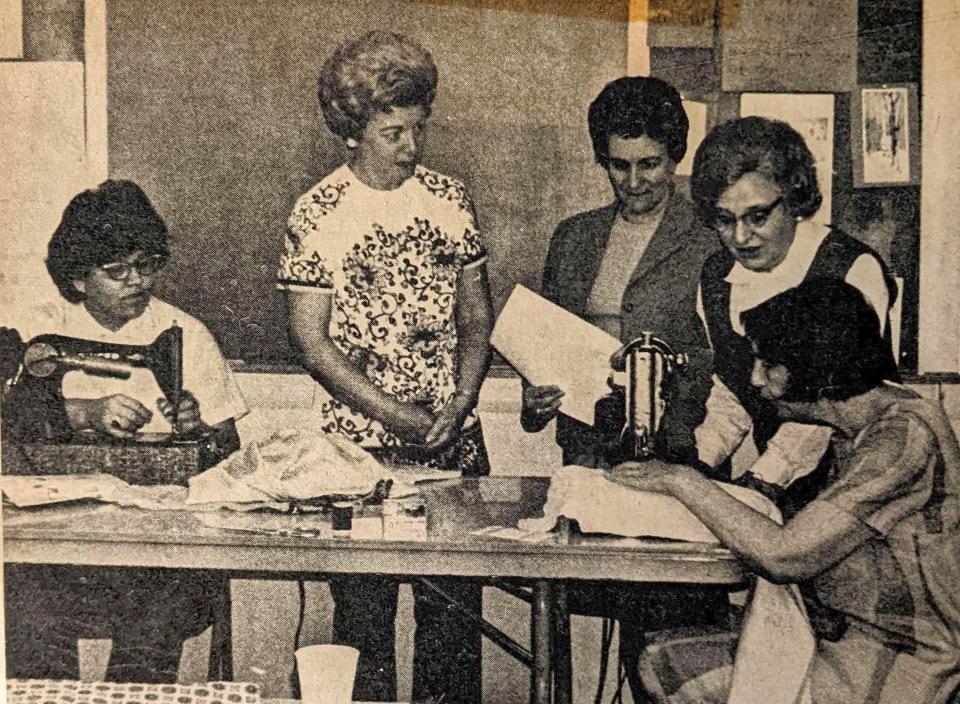
DALC was incorporated as an organization in 1972 although adult basic education classes had been held in Dover as early as 1966. Over the past 50 years, the center has grown and continually adapted to serve the changing needs of students.
On Tuesday, Oct. 4, current and former students, staff, board and volunteers, will gather from 4:30 to 6:30 p.m. on the front lawn of the McConnell Center to celebrate this milestone. There will be tours of the center, exhibits on the history of DALC and the opportunity to share and reminisce.
More: Dover changing how you pay for parking: What you need to know about pay by plate
As we prepared to celebrate, we pored through our archive of 50 years, from graduate essays to student writing to photos and celebrations. Much of the history was recorded in the pages of Foster’s Daily Democrat. We will always be grateful for the coverage and for this opportunity to share a walk down memory lane.
The early years
The story of adult education in Dover begins with high school counselor Ev Graves, who organized Dover’s first Adult Basic Education (ABE) classes at Dover High School, a product of a 1966 federal Adult Education Act. Around the same time, Irene Duffy started a daytime program at First Parish Church, with child care provided.
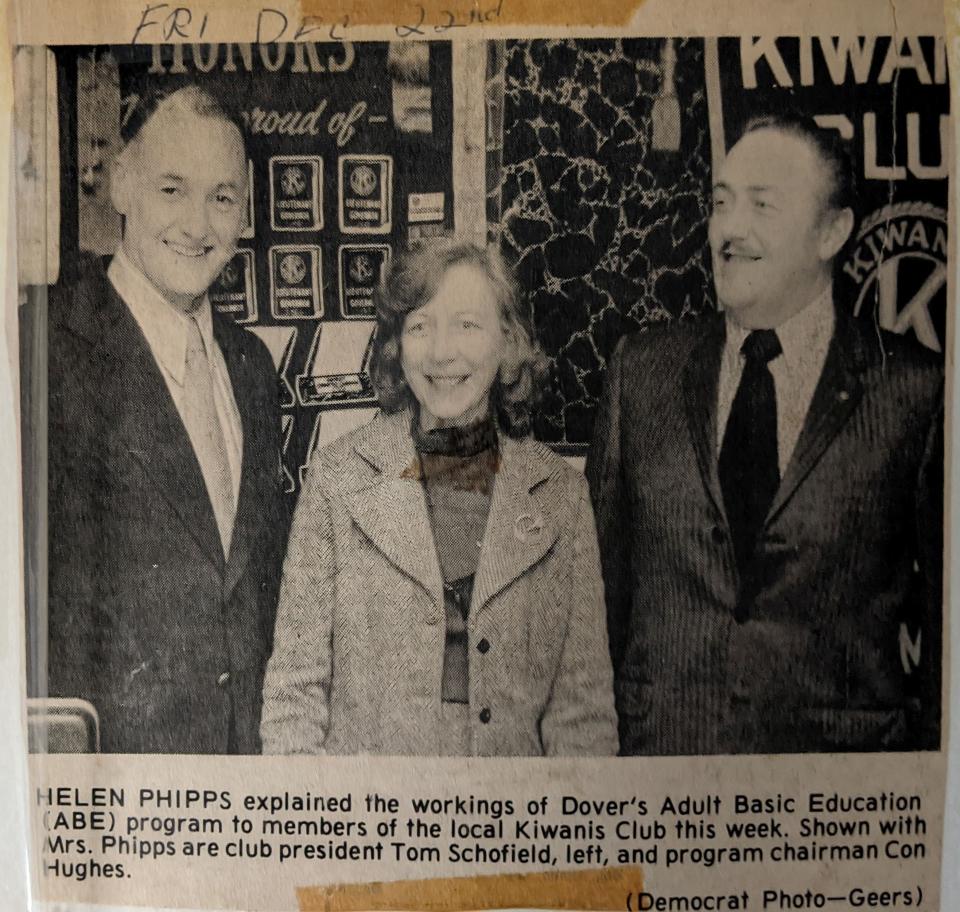
Helen Phipps, one of the first two women to be elected to the Dover City Council, was named director of Dover Adult Basic Education in 1970. The Dover Adult Learning Center was incorporated as an organization in 1972.
By 1972, Phipps saw a developing need to provide service for teenagers who dropped out of high school. With around 15 students, the first sessions were held in First Parish Church, alongside the adult classes. It was not long, however, before Phipps noticed the enthusiastic exuberance of 15 teenagers was straining the parish's capacity and patience.
The program moved to the old McIntosh Building behind the present-day Ember Wood Fired Grill restaurant. After a year, however, it was time to move again — this time over to the Butterfield Gym and then to Mineral Park, where the program continued for several years.
During much of this time, the program was headed by Martha Peterson Naples, who, along with Phipps, ensured students were exposed to cultural and enrichment activities as well as basic studies. They traveled to the Museum of Fine Arts, the musical "Godspell" and the opera "La Boheme."
By 1976, the five programs in operation in Dover included courses for adults, teenagers, the elderly, low-income persons, and individuals incarcerated in the Strafford County jail.
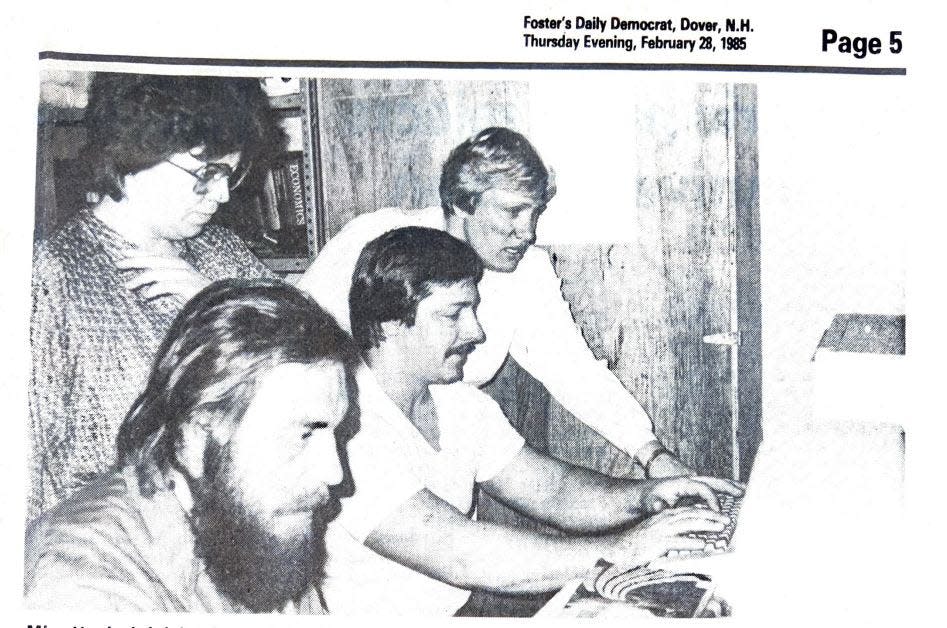
Key staffers included Donna McAdam, guidance counselor; Lucy Callahan, supervisor of the morning programs; and Debbie Tasker and Geraldine Keenan, who had a combined total of 18 years of teaching in the ABE program. "I consider my staffers to be the best in the state," Phipps said at the time. Both McAdam and Tasker would later lead the center.
As Phipps prepared to go before the Dover School Committee seeking funding in November 1976, an article touted the highlights of her ABE work to date, where 32 students passed the GED test, 11 students enrolled in other education or training programs, two discontinued welfare participation, 19 obtained jobs, five registered to vote for the first time. There were six who received U.S. citizenship, and 22 foreign-born adults who learned to read, speak and write English.
Home at last
In 1976, census statistics showed 44% of Dover adults over the age of 25 had not completed high school and 8% had not completed the eighth grade. Many had problems in reading, writing and computing.
While these statistics were not out of line with other former mill towns around New England, it was clear to Phipps that expanding offerings while consolidating in a central location was paramount.
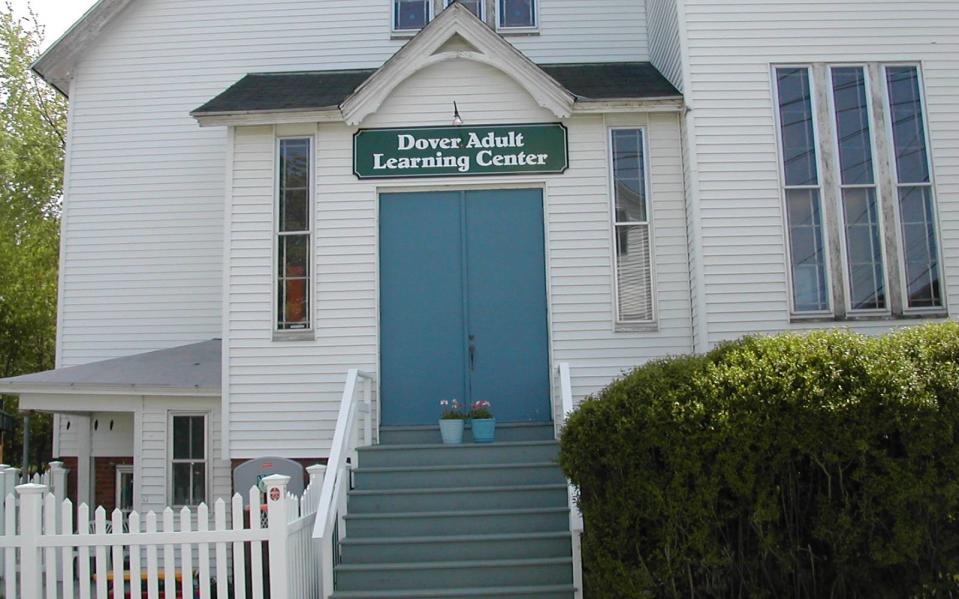
In 1978, a Community Development Block Grant enabled the city to purchase the former Advent Christian Church at 22 Atkinson St. and turn it over to the center for a dollar. While achieving the goal of a permanent home and bringing the programs together under one roof, the building would reach capacity in under a decade.
In 1980, Debbie Tasker replaced Phipps as executive director when Phipps retired because of poor health. New programs included the first certified nursing assistant classes, a displaced homemaker program and the first GED class at Strafford County House of Corrections. English as a second language (ESOL) would grow to become New Hampshire's largest program, as many refugees from southeast Asia settled in the area.
In 1982, the center was really struggling and declared Sept. 12-18, 1982, as Dover Community Education Week. The celebratory week began with the naming of the Helen C. Phipps Hall in honor of the city’s first community education director, who took adult learning from a few basic education classes at the high school to dozens of courses in a wide range of programs.
The second portion of the week would include a learning fair where representatives from Hesser College, New Hampshire College, The School for Lifelong Learning at UNH, Macintosh College, and UNH Continuing Ed would be on hand to meet with students to answer questions about the programs they offered.
There was a yard sale to help raise funds to be put toward the oil bill. Tasker said at the time, she has “no fantasies that we will clear the $3,000 we need in one yard sale.” She noted that administrators were considering relocating for the winter because they couldn't afford the fuel bills at the Atkinson Street center.
More: Dover Fire & Rescue grows with city: A close-up look at recruits training to save lives.
In 1985, teacher Minette Induisi wrote a grant to get two Apple computers for the Strafford County House of Corrections. She said the computers had a way of making the students feel good about themselves, reinforcing what they learned in class and keeping them engaged between class sessions.
A 1985 Christmas Eve feature in Foster’s profiled Induisi, the DALC’s most tenured employee who is approaching her 40th year. At that time, she was a full-time job counselor at Somersworth High School, as well as helping students earn their high school equivalency at DALC and at the Strafford County House of Corrections. In the first four years teaching at the jail, 120 students passed the exams and received high school diplomas. Just imagine how many lives she has changed in the 35 years since.
In June 1987, State Rep. Ann Torr of Dover, one of 18 Dover dignitaries who shook the hands of all the graduates at the annual graduation ceremony, said it was a very special occasion, recognizing there is something special when the road has not been so easy, when one’s path to high school completion is derailed.
“When you shake their hands, they just beam with pride. They're ready for the next challenge. You see it in their eyes," Torr said. “They've come up through the school of hard knocks, they've had a lot of experiences that make it more meaningful to them than to the average high school grad."
While financial ups and downs continued, the 1990s saw new skills classes; GED classes on-site at Davidson-Textron; and overall enrollment up 25%. At the same time, building booms across the state saw communities straining under the weight of property taxes looking to cut school expenditures. But DALC would go on.
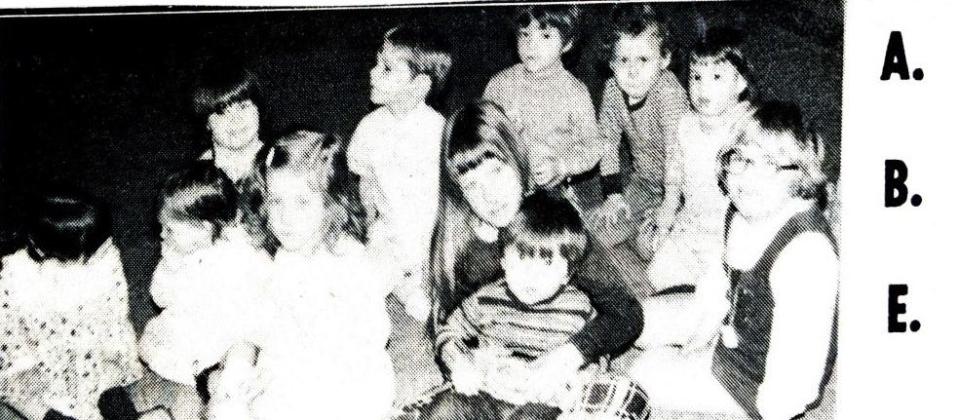
In 1994, DALC would boast the largest graduating class in the county at 256 and officially become "Dover Adult Learning Center, Serving Strafford County," spreading out to more communities, such as Milton and Farmington.
The class of 1994 included Barrington residents Jon and Jessica Grassi, a mother and son who would encourage each other as they studied to earn their high school equivalency certificates. Jessica, at 56, lost her job of 14 years when Clarostat left Dover. Seeing his mother return to school, Jon says he was inspired to do the same.
Over the years, there would be many such pairs; brothers and sisters, husbands and wives, and even a grandmother and a grandson graduating on the same day.
To learn more about DALC or share your memories, go to www.doveradultlearning.org/history/ and be sure to join us on Tuesday, Oct. 4, from 4:30 to 6:30 p.m. on the front lawn of the McConnell Center to celebrate this milestone. RSVP at www.dovernh.org/dalc.
This article originally appeared on Fosters Daily Democrat: Dover NH Adult Learning Center marks 50th anniversary

